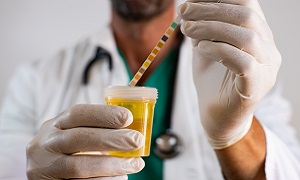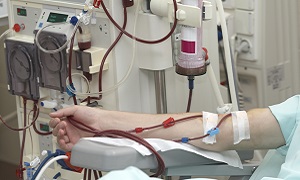Best Doctors in India for Acute Kidney Failure Treatment
Best Hospitals in India for Acute Kidney Failure Treatment
- City: Bengaluru, India
Hospital Highlights:
- Fortis Hospital Bannerghatta, Bengaluru was established in 2006.
- The hospital is a 276 bedded multi-specialty tertiary care facility.
- The hospital specializes in cutting-edge medical technology and dedicated patient care services.
- The hospital is equipped with state-of-the-art technologies like trans-radial angioplasty, trans-abdominal cardiac surgery, and computerized TKR navigation surgery.
- The hospital provides specialty medical services in cardiology, cardiac surgery, orthopedics, neurology, neuro-surgery, GI, and Minimal Access Surgery (MAS).
- City: Chennai, India
Hospital Highlights:
- Fortis Malar was established in 1992 and was formerly known as Malar Hospital.
- The hospital specializes in cutting-edge medical technology and dedicated patient care services.
- The hospital is multi-specialty, tertiary care facility with 180 beds.
- The hospital offers comprehensive medical care in specialties such as cardiology, cardio-thoracic surgery, neurology, neurosurgery, orthopedics, nephrology, gynecology, gastroenterology, urology, pediatrics, and diabetes.
- City: New Delhi, India
Hospital Highlights:
- Established in 1996, Pushpawati Singhania Research Institute is one of the top hospitals in the NCR region, as well as one of the top facilities in India for gastroenterology. The hospital is one of South Asia’s first institutes in medical and surgical treatment for diseases related to digestion.
- The hospital is equipped with state-of-the art facilities coupled with the latest equipment as well as renowned consultants from various parts of India as well as other parts of the world.
- City: New Delhi, India
Hospital Highlights:
- State-of-the-art technology and devoted healthcare professionals have been brought together under one roof at Venkateshwar Hospital to provide genuine medical care. The hospital’s professionals work together as a team to deliver the best possible treatment to their patients, using the most sophisticated equipment and information technology.
- Venkateshwar Hospital’s mission is to attain global excellence in healthcare by employing evidence-based, ethical clinical practices and cutting-edge technology by a team of highly skilled experts.
- City: New Delhi, India
Hospital Highlights:
- Sir Ganga Ram Hospital, New Delhi is known to provide the latest medical procedures with the latest technology in all of its units.
- The hospital has a team of reputed doctors, nurses, and healthcare professionals that ensure that patients receive quality care at affordable costs.
- Staffed with a team of highly qualified doctors, dedicated nurses, and paramedical and non-medical staff, the hospital aims to lead in healthcare delivery, medical education, training, and research.
- As per the vision of the founder, the hospital also provides free treatment to the economically weaker sections of society.
- Sir Ganga Ram Hospital also provides training to young doctors under the Diplomate in National Board(DNB) program. The DNB program at the hospital was started in 1984 and it is known for currently running the maximum number of DNB specialties in the country. It also has the distinction of having the first bone bank in India.
- City: Kerala, India
Hospital Highlights:
- Established in 2019, Apollo Adlux Hospital is the first Apollo Hospital in Kerala and the 73rd hospital owned by Apollo Group in India. With the state’s most advanced, comprehensive healthcare infrastructure and cutting-edge technologies, Apollo Adlux Hospital stands as an example of medical excellence in Kerala.
- With over 34 multi-specialty departments, the hospital believes in providing the best quality treatment to its patients at affordable rates, ensuring comfort at their difficult times.
- The 300-bed hospital is managed by a team of highly qualified and experienced experts who delivers exceptional hospitality to their patients and treats them with great compassion.
- With its affiliation with the Apollo Hospitals Group, the hospital aims in providing patients with top-notch healthcare services while also serving communities in Kerala.
- The hospital has good railway and road connections, and is conveniently close to Cochin International Airport.
- City: Gurugram, India
Hospital Highlights:
- Situated near DLF Cyber City, Gurugram, Narayana Superspecialty Hospital is one of the top medical facilities in the Delhi NCR region, catering to the needs of the people. Known for its commitment to quality medical care and patient service, the hospital is a state-of-the-art facility with planned and well-equipped sections, which includes a spacious OPD area as well as comfortable patient rooms.
- It is the closest super-specialty hospital from Indira Gandhi International Airport towards Gurugram, and also the nearest super specialty hospital from DLF Cyber City. It is also close to major residential areas in Gurugram.
- It is part of the renowned Narayana Health Group. Established in 2000, by Dr. Devi Shetty, a renowned cardiac surgeon, it has grown to be one fo India’s leading healthcare groups.
- City: Noida, India
Hospital Highlights:
- Fortis Hospital, Noida, stands as one of the oldest and most trusted healthcare institutions in the region, setting a benchmark for comprehensive medical care.
- As the second mega hub hospital in the Fortis Healthcare Group, Fortis Hospital, Noida, upholds a legacy of trust among more than 1.2 million patients. By integrating top-tier professionals with cutting-edge technology, the hospital delivers superior treatment across various medical disciplines.
- Specializing in advanced Neurosciences, Orthopedics, Kidney and Liver Transplant Programmes, Fortis Hospital, Noida has successfully performed over 1,500 transplants, solidifying its reputation as a leader in specialized medical interventions.
ACUTE KIDNEY FAILURE
Acute kidney failure, which is also termed as acute renal failure, is a condition which occurs when your kidneys suddenly stop working. It can happen in just a few hours or days.
This condition is not always permanent, and your kidneys can return to normal function, if you receive immediate treatment right away, and if you are not having other serious health problems.
The main purpose of the kidneys is to filter out the waste from your blood. They also need to remove any extra fluid that is in your blood, which becomes your urine. Kidneys also help in making red blood cells as well as regulating electrolytes.
When kidneys are damaged, they are unable to work well. This could happen due to another health condition, such as diabetes. When there is a decrease in kidney function which happens over a longer period of time, it is known as chronic kidney failure.
Symptoms
You may not show any symptoms of acute kidney failure, and it might be discovered by your doctor during a lab test for another reason.
However, if you do show symptoms, then they are going to depend on how severe your condition is. Some of them might include:
- Urinating less than normal
- Itching
- Joint pain, swelling
- Swelling in your legs, ankles, and feet
- Feeling very tired or drowsy
- Throwing up or feeling like doing so
- Chest pain or pressure
- Confusion
- Shortness of breath
- Loss of appetite
- Muscle twitching
- Stomach and back pain
- Fever
- Seizures or coma (in severe cases)
- Rash
- Nosebleed
Causes
Acute kidney failure occurs when you have a condition which can slow the flow of blood to your kidneys, or if you experience any direct damage to the kidneys. In some cases, your kidney’s urine drainage tubes, i.e. ureters, can get blocked, due to which wastes might be unable to leave the body through your urine.
Certain conditions can slow blood flow to the kidneys, which can cause kidney injury. These include:
- Blood or fluid loss
- Heart disease
- Infection
- Liver failure
- Blood pressure medications
- Heart attack
- Use of medications such as aspirin or ibuprofen
- Severe allergic reaction
- Severe dehydration
- Severe burns
There are also diseases and conditions, which can damage the kidneys which can lead to acute kidney failure. They include:
- Blood clots in the veins and arteries in as well as around the kidneys
- Glomerulonephritis, which is an inflammation of the tiny filters of the kidneys
- Cholesterol deposits which can block blood flow in your kidneys
- Hemolytic uremic syndrome, a condition resulting from premature destruction of red blood cells
- Viral infection, such as with the virus that causes coronavirus disease 2019 or COVID-19
- Certain chemotherapy drugs, antibiotics, and dyes used during imaging tests
- Lupus, an immune system disorder that leads to glomerulonephritis
- Scleroderma, a group of rare diseases which can affect your skin and connective tissues
- Toxins, like alcohol, heavy metals or even cocaine
- Thrombotic thrombocytopenic purpura, which is a rare blood disorder
- Muscle tissue breakdown or rhabdomyolysis, that leads to kidney damage caused by toxins from the destruction
- Breakdown of tumor cells which can lead to the release of toxins, which can cause an injury in the kidney
Several diseases or conditions that can block the urine from passing out of the body may also cause acute kidney injury. They include:
- Bladder cancer
- Colon cancer
- Enlarged prostate
- Blood clots in the urinary tract
- Cervical cancer
- Kidney stones
- Nerve damage involving the nerves controlling the bladder
- Prostate cancer
Diagnosis
If your signs and symptoms are suggesting that you might have acute kidney failure, then your doctor might recommend certain tests and procedures in order to verify the diagnosis. These can include the following:
Urine output measurements
Blood tests
Urine tests
Imaging tests
Removing a sample of kidney tissue for testing

Treatment
Your treatment is going to depend on what your cause of acute kidney failure is. The goal of the treatment is to always restore the normal function of the kidneys. It is also important to prevent fluids and wastes from building up, during the recovery of the kidneys. In most cases, the evaluation is made by a kidney specialist known as a nephrologist.
Diet
Medications
Dialysis
Complications
Certain complications which can arise from acute kidney failure include:
- Chest Pain- If the lining covering your heart, i.e. pericardium becomes inflamed, you might experience chest pain.
- Fluid Buildup- Acute kidney failure might lead to a buildup of fluid in the lungs, which can cause shortness of breath.
- Muscle Weakness- Muscle weakness can be caused by your body’s fluid and electrolytes, and your body’s blood chemistry when they are all out of balance.
- Permanent Kidney Damage- Generally, acute kidney failure can lead to permanent loss of kidney function or even end-stage renal disease.
- Death- Acute kidney failure might also lead to loss of the function of your kidneys, and even death.
Prevention
Though it is generally hard to predict or prevent, taking a few steps can reduce your risk of developing acute kidney failure.
If you have kidney disease or any other condition, which can increase the risk of acute kidney failures, such as diabetes or high blood pressure, then follow your doctor’s recommendations to manage your condition.
Make a healthy lifestyle a priority. Make sure that you are active, and eat a sensible and balanced diet. If you drink alcohol, do it in moderation.















